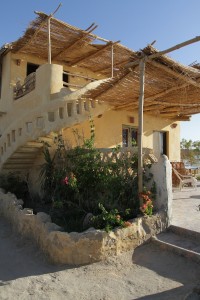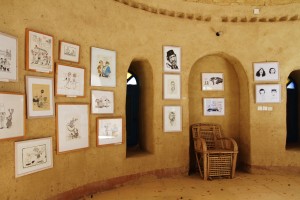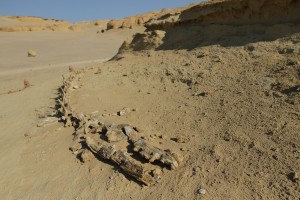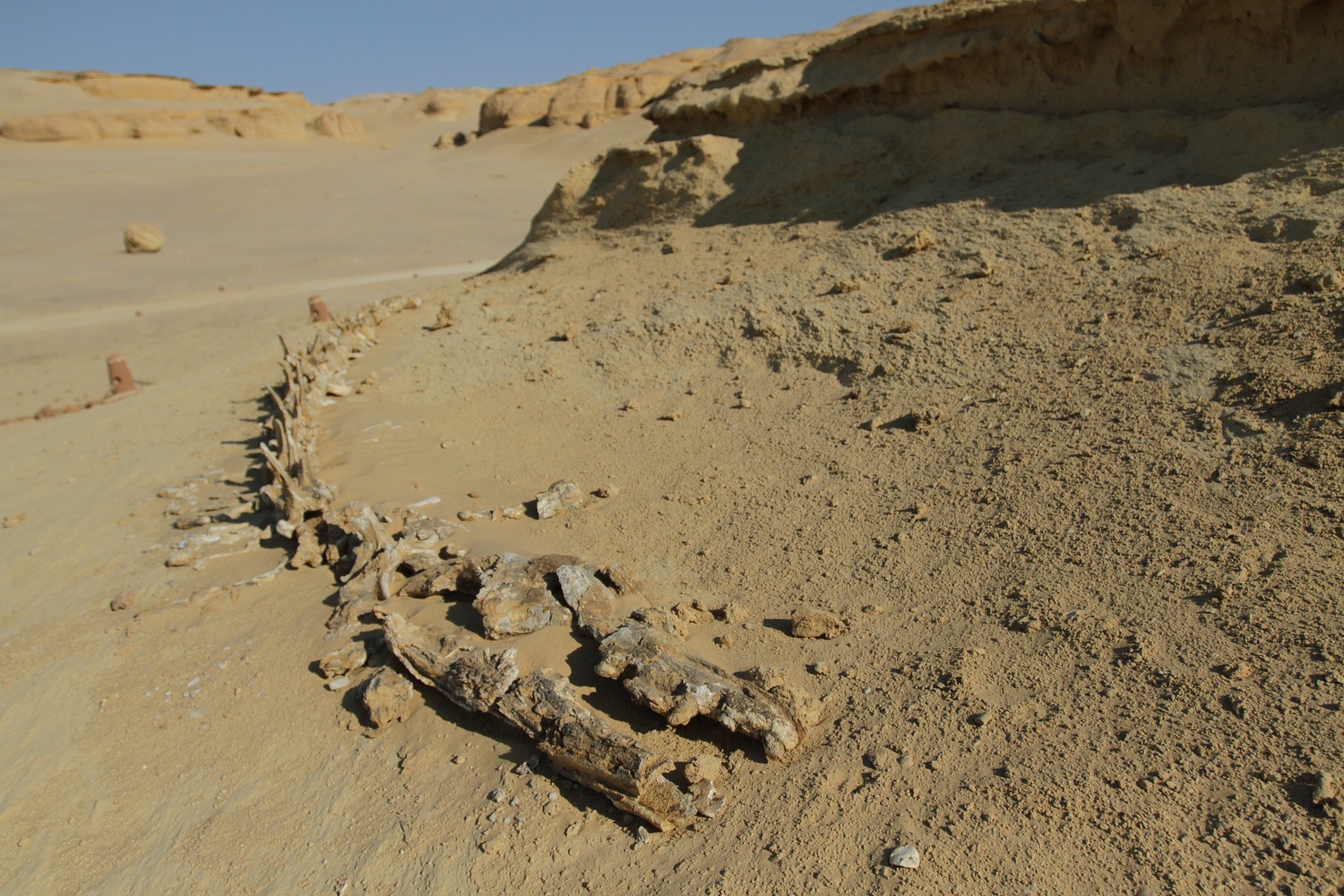The journey: bit of a struggle
I’ve been to Fayoum twice now. The first involved an eight hour drive with a 16 year old microbus driver called Rambo, the second was a 19 hour day trip involving eight different vehicles and a puncture on a desert highway. Suffice to say, transport can be a bit of an issue when heading south.
With the approach of Ramadan and a long quiet weekend ahead of me, I popped into a travel shop off Tahrir Square to see if they could tell me where to get the bus to Fayoum. ‘Go to the bus station behind the museum,’ the girl told me, so I dodged the traffic and crossed over the road. ‘No, it’s not here, go over there’ a nice man told me. Confused, I headed over to the big yellow bus company over the road. ‘No, no, not here, go to Cairo Gateway.’Annoyed, I jumped in a taxi and headed to Cairo Gateway.
I got to the third bus station and the man behind the counter told me to go to yet another. ‘Abud?’ I asked him? ‘Are you sure?’ This is the fourth place now. ‘Sure’ he says, and his English is definitely good enough to understand what I’m saying. Confused, I head back to the office and decide I’ll just have to get myself to Abud early the next day.
I headed to Abud and quickly realised that even this wasn’t the right bus station. Two young men offered to drive me in their microbus however, and a few hours later we arrived at our destination. Me not speaking Arabic, and neither my host at El Mandara ecolodge nor the driver speaking English led to an enormous amount of to-ing and fro-ing between the main road and the lodge and we arrived at El Mandara El Fayoum only by chance. Mohammed the manager appeared at the van. I was delighted to see him but it definitely took longer than the one and a half hours I was told.
Accommodation: worn by nature

Rachel Adams / DNE
Mohammed lead me down the sandy track to the front of the lodge, and everything melted away into the sound of waves gently breaking. The lounge consisted of low slung chairs and tables bleached and worn by the sand and wind. The sound of the waves was the best sound I’d heard all day.
After some sheesha, some tea and a broken Arabic-English conversation with Mohammed, I went off to my room. The wind was loud and I was convinced I would never sleep, but next thing I knew it was 5am, the sun was peeping through the curtains in the window and I was wide awake. I wandered outside and down the path to the shore of the lake. Gradually more and more fishing boats appeared as the sky became clearer and soon there were twenty or so boats moving silently around the expanse of water. The word ‘bliss’ didn’t cover it.
My breakfast arrived promptly at 7am, brought by a bleary-eyed Mohammed after his first day of fasting. It was fatia with delicious molasses, white honey, omelette, feta and cucumber and a large bottle of water. I asked for some coffee and it was brought straight away, Turkish style.
El Mandara El Fayoum is situated right on the shore of Lake Qarun, originally a freshwater lake but one which is now increasing in salinity. It sits 45m below sea level, and although clean enough to support its own unique ecosystem including fish good enough to be sold and eaten all around the area, the agricultural runoff from surrounding farmland doesn’t make it good for swimming.
The accommodation is a ten year old ecolodge which on first appearances seems a little ramshackle, but as you get to know the tiny compound of ten suites and five rooms the artisanal aesthetics become more apparent; a mud brick oven hidden away against a wall, a seemingly never-ending supply of miniature palm-covered roof-top lounges, and lots of little nooks and crannies to discover. High season is winter.
Two of the rooms have their own ‘cool tubs’ facing the lake (they are called pools but they’re not big enough to swim in). Beds and rooms are simple but very clean, furniture is rustic and in my bathroom, well worn. It is not a luxurious abode by any stretch of the imagination but the service is more than good, and the food simple but excellent. i hadn’t planned an evening meal, so I was delighted when Mohammed unexpectedly prepared a beautiful meal of locally caught tilapia fish, rice and salad.
Staying here is a bit like a very good camping experience, running water, clean but basic accommodation and the joy of being close to the elements.
The region’s ‘premier’ and original ecolodge is up the road in Tunis and called Zad Al Mosafer (meaning guest-house). It was built in 2001 by journalist-turned-writer Abdo Gobeer in the adobe style. It is clean, there is a large restaurant and a private pool, grassy lawns, and a cool shaded mastaba area with ecological insect repellants; small transparent plastic bags filled with water hanging from the ceiling which apparently scare off flying bugs as they see their enlarged reflection. You can also do pottery courses here.
Activities: pottery and art

Rachel Adams / DNE
There is lots to do at El Mandara. You can horse ride, use the pedalo on the lake, play table tennis, volleyball, babyfoot, or go fishing. Or alternatively, you can spend many hours doing not very much at all.
Tucked away further along the lake road is the village of Tunis, small, quiet, and perfect for a lazy wander around. Fifteen years ago two Swiss potters built a pottery school which trains locals and has a very well stocked shop selling all kinds of crockery, inspired by the colours of the local landscape.There are more than half a dozen other studios in the village and you can watch pots being thrown and buy products from most of them.
There is also the incredible Caricature Museum, curated by Mohammed Abla and housed in a beautiful adobe complex, the main room of which also comprises one of the largest mud brick domes in the world at seven metres in diameter. Containing an excellent collection of caricatures and cartoons by Egypt’s best-loved artists since the beginning of the twentieth century, as well as sculptures by locals, the museum is a must-see.
You can also do art courses there, one of the most popular being one in ‘Fayoum Portraiture,’ where you can use natural materials and pigments to create your own version of the famous graeco-roman portraits discovered in the area.
For food, there are a number of very good fish restaurants along the lake in Shaqshuq, a blossoming village popular with locals and day-trippers from Fayoum.
Valley of the Whales

Rachel Adams / DNE
Tunis is on the way to one of Egypt’s most interesting natural spots, the Wadi Rayan protected area, a nesting ground for native and migrating birds. As time was short for us, we didn’t have time to stop to admire the country’s largest waterfalls, situated less than 50km from Tunis off the main road, but as we drove through the valley, the Tunis potters’ inspiration was more than apparent; white sand, turquoise lakes framed by bottle greens and the ever-present expanse of blue sky made a stunning vista from the car window.
You drive through Wadi Rayan to reach Wadi Al Hittan, or Valley of the Whales, a UNESCO World Heritage site containing invaluable fossil remains of the earliest, and now extinct, suborder of whales, archaeoceti. These fossils represent one of the major stories of evolution: the emergence of the whale as an ocean-going mammal from a previous life as a land-based animal. This is the most important site in the world for the demonstration of this stage of evolution. The number, concentration and quality of such fossils here is unique.
As you make your way down the dip into the valley behind Garet Gohannam (or the Mountain of Hell in reference to the fiery late afternoon colours), you will be faced with an impressive expanse of what was once an ancient sea bed. Surreal mushroom-like natural sand sculptures protrude out of the ground and as you descend into the bottom of the valley the rest of the world drifts away. Cars are forbidden from driving further than the car park, and a cafe, gift shop and amenities looking as if they’ve been sculpted out of sand itself encircle the entrance to the strictly camel or human-only walking tour around the skeletal exhibits.
Transport issues meant that we didn’t arrive at the site until around 3pm but after a quick rehydrating pit stop at the lovely quiet cafe, we set off around the valley. Guides say you should allow two to three hours to see all the whales, which is a generous amount of time. Paths through the outdoor museum are laid out with stones, wood and rope, and sheltered resting places provide respite from the sun as well as information boards setting out the area’s incredible natural history.
The park is fascinating. As a UNESCO heritage site it is well-kept and sympathetically arranged, although staff told us that the owner is currently unable to pay their wages due to the lack of visitors since the revolution. The roads can get drifted with sand, so to make sure you arrive with enough time to fully appreciate the surreal surroundings it would be worthwhile camping overnight at the site in tents provided. The walk around the valley should be done in cool early morning or late afternoon. There being no electricity and nothing else to do but watch the stars, listen to the desert and absorb the natural history you’re surrounded by, it is a world away from city life, all the trappings of modernity, and a trip that is more than worth the trek.
Fayoum: practical information
Getting there:
To Fayoum and Tunis: take a microbus from Al-Remaya Square, Giza. You can get off at the roundabout before entering Fayoum and take another bus or taxi towards Lake Road (Sharia el Birq) and the ecolodges El Mandara, Two Lions, and Zad Al Mosafer.
To Wadi Riyann and Wadi Al Hittan: Hire a private car through Fayoum Tourist Board (084 6342313). Desert guide Mohammed Abdel Wahed (01008449967) will charge EGP 500 to take you to Valley of the Whales from Fayoum and EGP 700 from Cairo. For two days he will charge EGP 1300 from Fayoum.
If staying at Zad Al Mosafer you can ask for someone to drive you to the valley. It should cost between EGP 3-500.
Accommodation:
Ecolodges: El Mandara El Fayoum: 0100 2000 600. A double room costs EGP250, a suite for up to four people costs EGP350 and EGP450 for the rooms with a pool. Breakfast is included and dinner is available on request.
Zad Al Mosafer: 0846820180. A double room with bathroom outside the room costs EGP 85, en suite EGP 100 and with air conditioning EGP 190. There is a well stocked restaurant – breakfast, lunch and dinner are extra.
Camping is available at Valley of the Whales. A tent for two people costs EGP 45 and includes breakfast. You can also order simple meals of chicken or fish with rice and salad – prices at the time of asking were EGP 50. There is no electricity or phone, so booking in advance is not possible.
Activities:
For camel riding through Wadi Al Hittan call Fayoum Tourism Board. For horse riding and fishing call Amr at El Mandara ecolodge on 0100 2000 600.
For pottery and art classes at Zad Al Mosafer and the Mohammed Abla Art School / Caricature Museum call Sayed on 01281108390.
Information on the area is available from Fayoum Tourist Board: 084 6342313
Dining:
Zad Al Mosafer and El Mandara serve dinner to non-guests. There is a plethora of fish restaurants on the shore of the lake at Shaqshuq, between Tunis and the road back to Fayoum.




